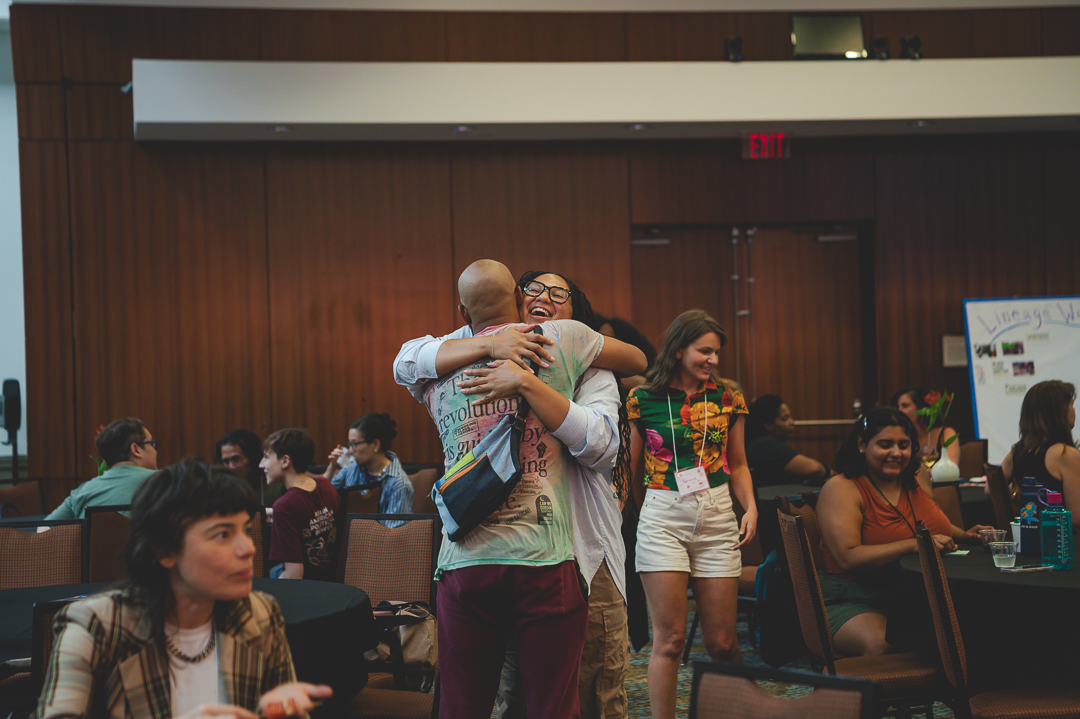Fake news, corporate control of the internet, digital surveillance, law enforcement agencies using big data to target communities of color — all of these issues have taken on increasing importance in recent years. The Center for Media Justice (CMJ), founded in 2008, is at the forefront in ensuring that communities of color are at the center of the debate and policy solutions to these critical problems.
Steven Renderos, a 2017 ReFrame mentee, is the Organizing Director at CMJ, where he leads the organization’s campaign work on the role of media and communications policy in building movements for social change.
The election of Donald Trump dramatically shifted the terrain for CMJ. “We’ve lost a lot in a very short amount of time,” Renderos said. “A lot of the gains we made around communications, especially at the FCC level, all of those got stripped away.” He’s referring to victories won under the Obama administration — FCC rules governing broadband privacy and reforms to the Lifeline program that offers discounted phone service to low-income Americans — that have been reversed under Donald Trump and his new FCC chairman, Ajit Pai.
Renderos believes the most critical fight now and in the coming years will be to preserve net neutrality, and it’s here that CMJ is investing most of its resources. “It’s a fundamental battle,” Renderos explained. “Net neutrality guarantees that all of our voices are created equal online. It is the thing that prevents giant corporations from manipulating and privatizing our communications online. If we lose this, it severely hampers our members, our movements, and our whole sector’s ability to resist in this time period.”
He pointed to campaigns that are savvily using internet, social media, and digital tools to wage campaigns against deportations and police violence. “If you take net neutrality away, the internet just becomes another version of cable TV,” he said.
Communications and messaging have played key roles in CMJ’s work to ensure that communities of color are front and center in debates around net neutrality, and to frame it as a civil rights issue. “Back in early 2009 and 2010, when net neutrality was first being debated at the FCC, the narrative was, ‘This is a debate about ISPs on one side and techies and nerds on the other side, who are mostly white,” Renderos said. “And that lended itself to some potential wedge narratives. Legacy civil rights organizations were against net neutrality. One of the specific roles that we needed to play with partners like Color of Change was lifting up more diverse voices on this issue.”
In response, CMJ lifted up the role of digital tools in amplifying the Black Lives Matter movement and the uprisings in Ferguson and around the country, as well as movements like #Not1More against deportations and the fight at Standing Rock.
Obama-era victories around net neutrality are now being reconsidered, and the FCC is in the process of collecting public comments. CMJ and its partners have been leading efforts to ensure that a wide array of voices — especially organizers and communities of color — submit comments (to date, more than 20 million comments have been submitted, a huge increase over the 4 million submitted in 2015 when the Obama administration took up the issue). Looking to the future, Renderos and CMJ will be working to ensure that Congress doesn’t move legislation forward to weaken net neutrality.
“In moments within the larger coalition spaces we participate in, where we’ll talk about action and getting legislators to do something, we’ve been very intentional about ensuring voices of those who are most affected are at the center of that conversation,” Renderos said. “This is part of what we contribute to this fight. The stories we submitted were all stories of poor people, people of color, on why they care about this issue.”
This messaging and organizing, he added, “has really allowed for other legacy civil rights groups who have taken problematic positions in the past” to change their positions and now be in support of net neutrality.
In all of this work, the support of ReFrame has been essential, Renderos said. Despite being an organization that focuses on and organizes around communications and technology issues, CMJ “needed that support to do communications work,” he said, and “to be strategic in our organizing and our communications.”
With ReFrame’s guidance, CMJ has been able to garner not only increased visibility and press attention, but has been able to reach the right audiences. Whereas previously, CMJ’s congressional briefings would barely make a blip on the media radar, CMJ recently was able to get op-eds placed in strategic outlets like Wired and TechCrunch, timed with a delegation they and their partners made to Capitol Hill to speak about the impact of digital surveillance by police and federal agencies on immigrant communities.
Said Renderos: “ReFrame helps us feel that communications strategy isn’t just a secondary thing, but really part of a larger conversation on the work that we’re doing.”







































.jpeg)


.png)

%20(1).png)




























